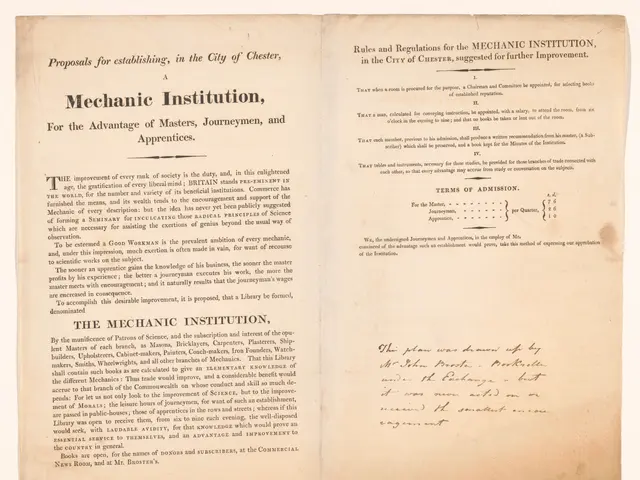Dropped Orders in U.S. Aviation Sector - " Significant Decrease in Aircraft Purchase Agreements"
U.S. Industry Suffers Significant Drop in New Business Orders
Orders for durable goods in the U.S. industry decreased by 6.3 percent in April compared to the previous month, according to data released by the Commerce Department. This downturn in new business includes orders for aircraft, electronic equipment, and construction machinery.
Economists surveyed by Reuters had anticipated a steeper decline of 7.8 percent, but the drop was less severe than expected. The dip in orders comes after a revised increase of 7.6 percent in March.
Helaba expert Ralf Umlauf attributes the significant decline in aircraft orders, which may be linked to trade disputes, for the large drop in overall orders. He notes that, excluding the volatile transportation sector, there would have been a slight increase of 0.2 percent. Umlauf further states that uncertainty about U.S. trade policy and the Federal Reserve's non-urgent attitude towards potential interest rate cuts have increased.
The decline in aircraft orders is part of a broader economic trend that may not necessarily revive expectations for interest rate cuts. Despite pressure from U.S. President Donald Trump, Federal Reserve official Neel Kashkari has urged patience in lowering interest rates. Kashkari, the head of the Minneapolis Fed district, believes interest rates should remain stable until there is more clarity on the impact of Trump's trade policy. The Federal Reserve has kept its benchmark interest rate unchanged in the range of 4.25 to 4.50 percent since December.
Sources: ntv.de, RTS
On a related note, the decline in aircraft orders can be attributed to various factors, such as lower demand due to economic uncertainties and regulatory factors, supply chain disruptions, and tariff implications. These industry trends may contribute to broader economic trends, potentially increasing pressure on central banks to adopt accommodative monetary policies like interest rate cuts to stimulate economic growth. However, it is essential to consider these trends within the broader economic context when making monetary policy decisions. Global economic conditions, including trade tensions and geopolitical events, also significantly impact interest rate expectations.
- The significant drop in aircraft orders, a key component of the U.S. aerospace industry, could be a signal for central banks to consider employment policies that stimulate economic growth, given the potential ripple effects on the broader economy.
- Amid stakeholders' calls for accommodative monetary policies like interest rate cuts, it is crucial for policymakers to assess the employment and industry implications of current economic trends in sectors like finance and aerospace before making decisions that could impact the overall employment landscape.








